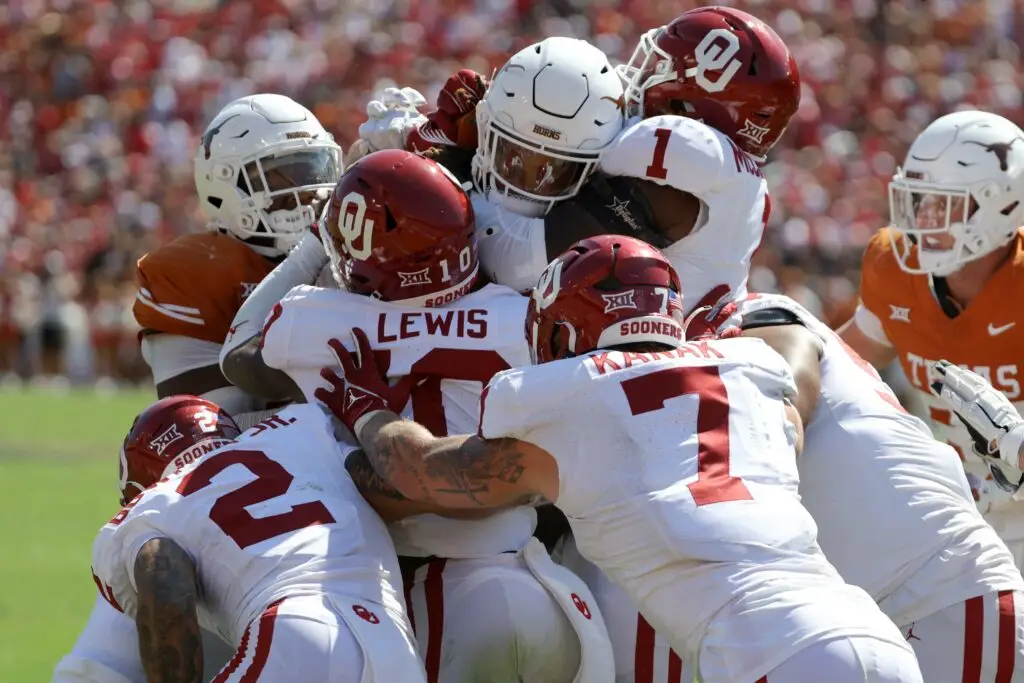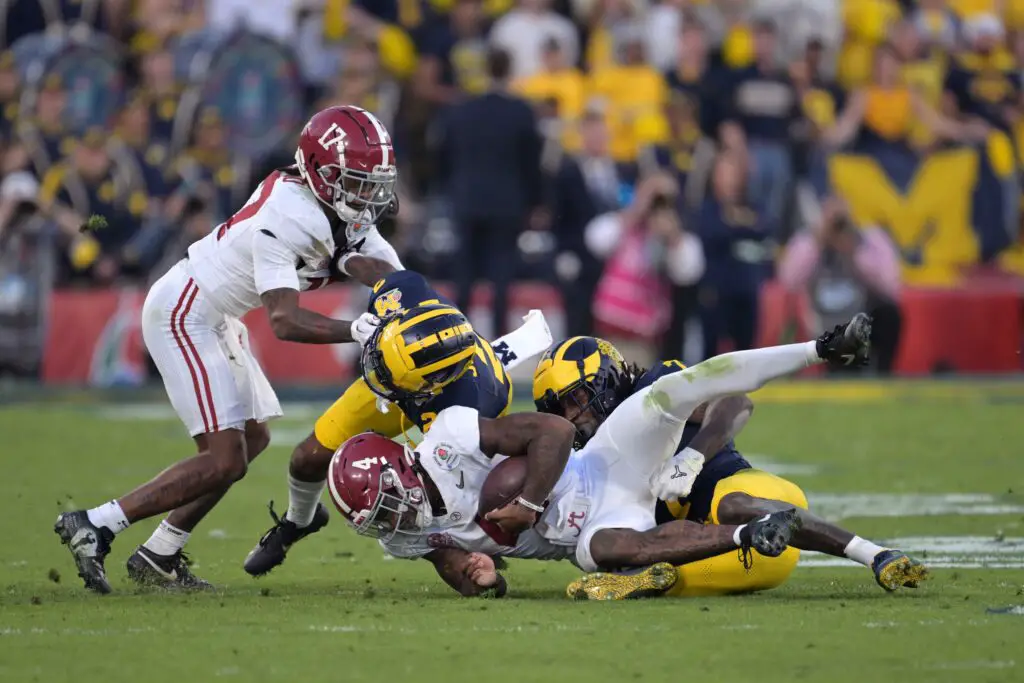College football has reached a point where teams can no longer depend on their conference schedule being good enough for seeding and rankings at the end of the season. Sure, a team like Florida may have an insanely difficult schedule and not need the nonconference games to boost their resume. Still, the nonconference will matter for some teams, including another SEC team like Missouri with a SOS that rivals teams like Maryland and UMass.
Competition for At-Large College Football Playoff Spots

Historically, there hasn’t been much debate about who would get into the 4-team college football playoff. 110 teams (out of 134) knew that they wouldn’t go 12-1 or better and have any chance at the Playoff before the season started. For the 20 or so teams who felt like they had a real shot, it was more about winning than who they beat.
That is changing in 2024.
This year, with a 12-team playoff, well over 50 teams are looking at a path to the Playoff. After all, for every P4 team, a 10-2 record will likely be enough to be seriously considered. But that is just the thing: There will be a lot more 10-2 teams than there were 12-0 or 11-1 teams.
Because of that, non-conference games now really matter.
10-2 Isn’t THAT Difficult to Achieve

Photos by Joshua Mccoy/Ole Miss Athletics
The College Football Playoff will not be easy to make, even under a 12-team playoff, but with 12 teams, there is a lot more forgiveness. In the last three years combined, there have been five teams who finished the season undefeated, while there have been 21 teams who have finished with a 10-2 record.
Looking at a hypothetical playoff from last year using this year’s format/teams, the seeds would have been:
- Georgia 12-0 (SEC Autobid)
- Michigan 12-0 (Big 10 Autobid)
- Florida State 12-0 (ACC Autobid)
- Arizona 9-3 (Big 12 Autobid)
- Washington 12-0
- Oregon 11-1
- Ohio State 11-1
- Texas 11-1
- Alabama 11-1
- Missouri 10-2
- Penn State 10-2
- Liberty (G5 Autobid)
Yes, these records would not have been the same under the new conference affiliations, but the point remains. Last year, four 10-2 teams—Ole Miss, Oklahoma, Louisville, and Iowa—would have missed the CFP despite having a 10-2 record.
With the debate between 10-2 teams now ramping up, non-conference games will be more important than ever.
Why Will Non-Conference Matter So Much?

A team can make or break their season in the year’s first three games. Last year, Oklahoma State played in the Big 12 Championship game, yet nobody was even talking about them because they lost to South Alabama in the non-conference. On the flip side, Utah was put on the map very early after taking down Florida in the season’s first game. The same happened to Texas when they went to Tuscaloosa and beat Alabama.
That is the power of a big non-conference win or loss. The CFP Committee is very good at what they do, but they are also human. Undoubtedly, the winner of the LSU vs USC game will get a boost in any voter’s mind. The Committee looks at polls, watches the storylines, and knows which teams are trending. If USC were to win that game and be 10-2 and three other teams all fighting for an at-large spot, the memory and impact of them beating LSU in week one would carry a lot of weight – even more than a week seven conference game that may have been just as good competitive-wise.
Another reason non-conference games will be so critical is that because of tie-breakers, the committee will value how well a team performed outside of their conference and who they played. A team that plays a lower-tiered P4, an FCS, and a bad G5 team will have a tough time winning any tiebreakers over a team that plays a tough non-conference slate.

